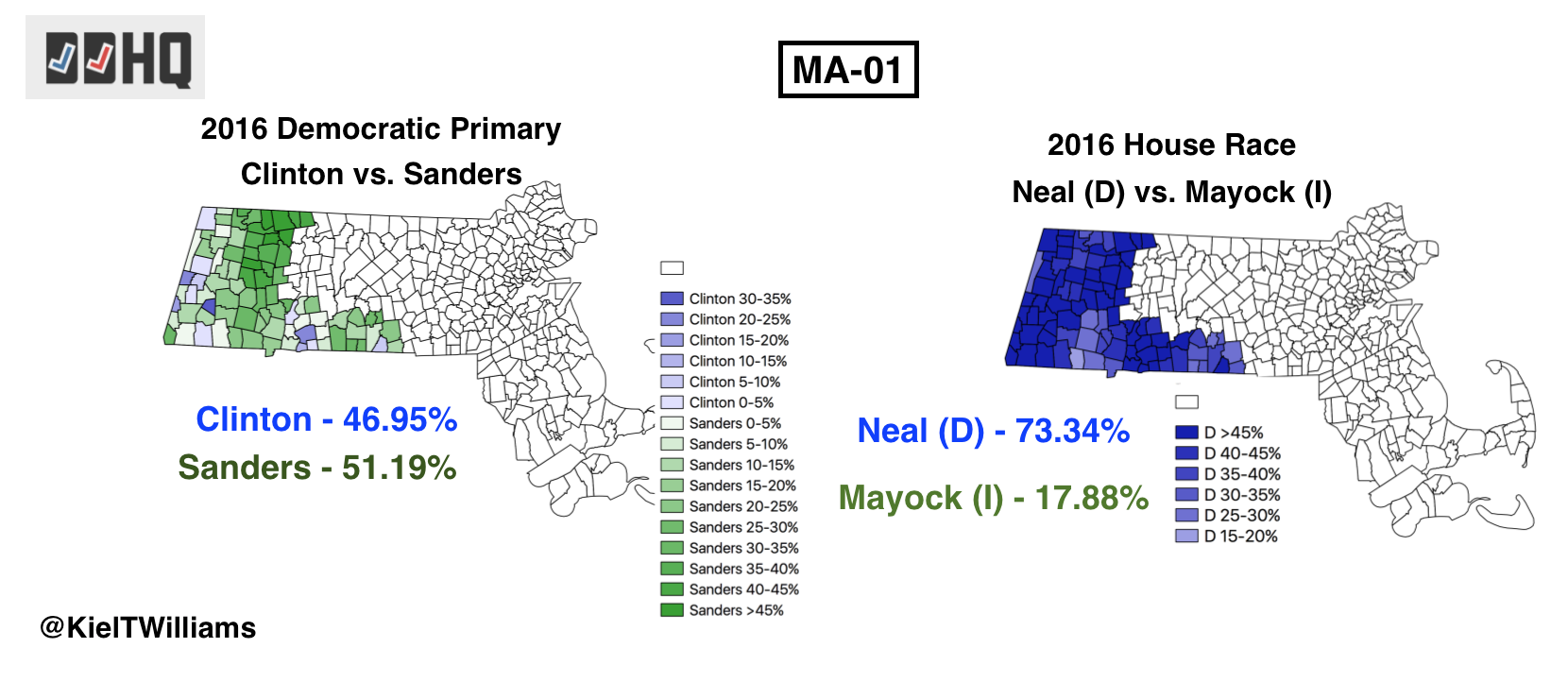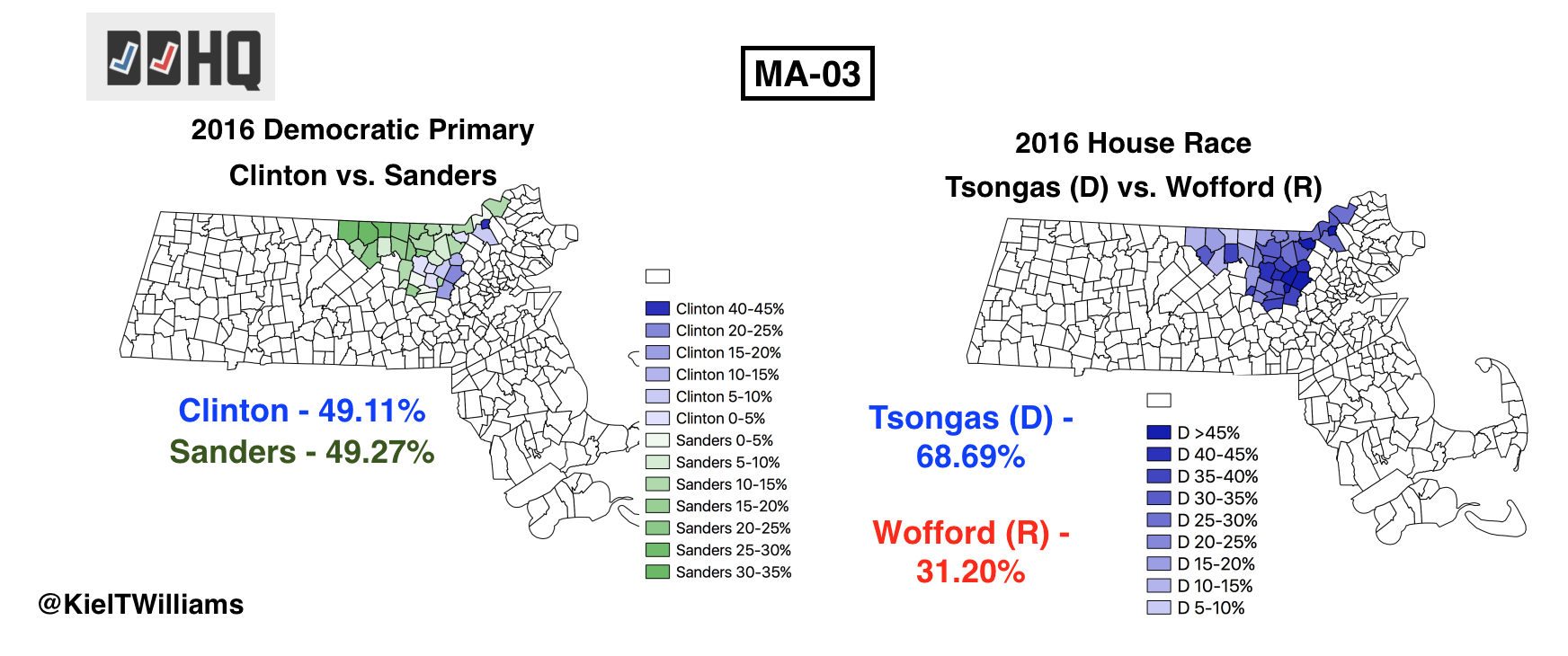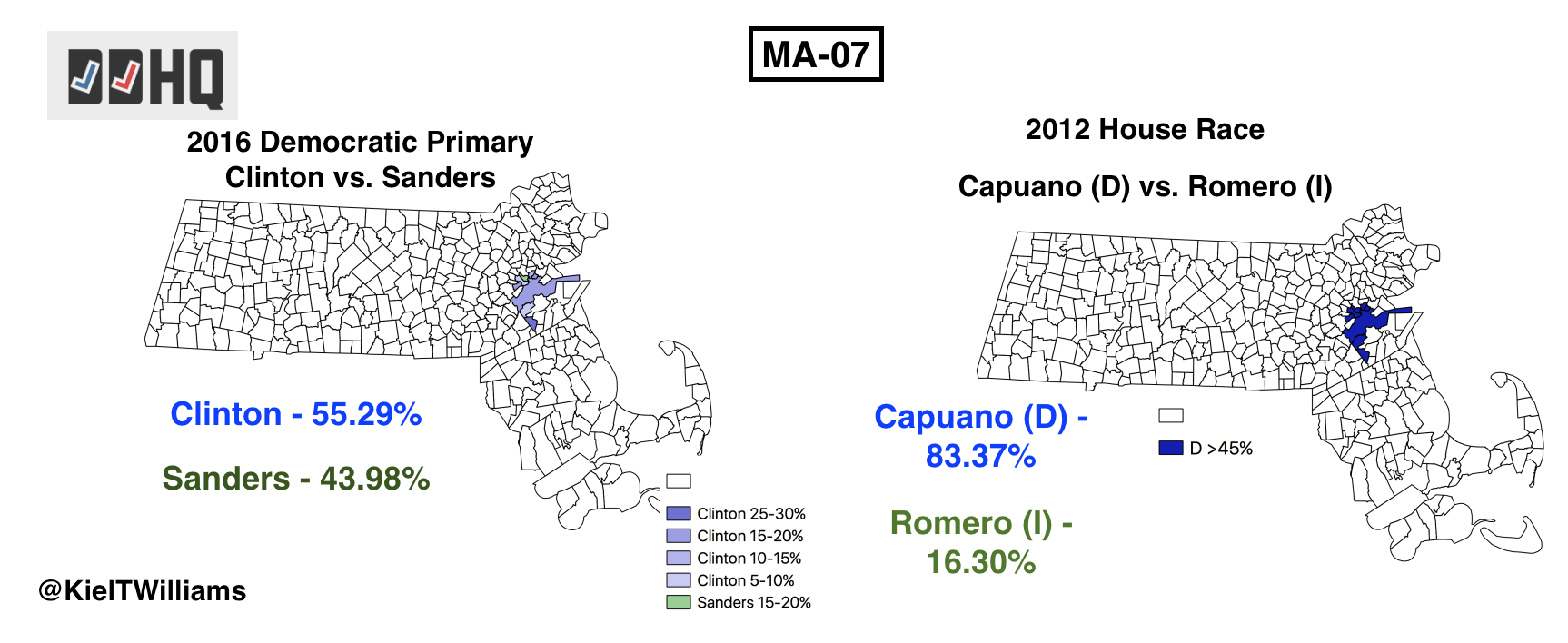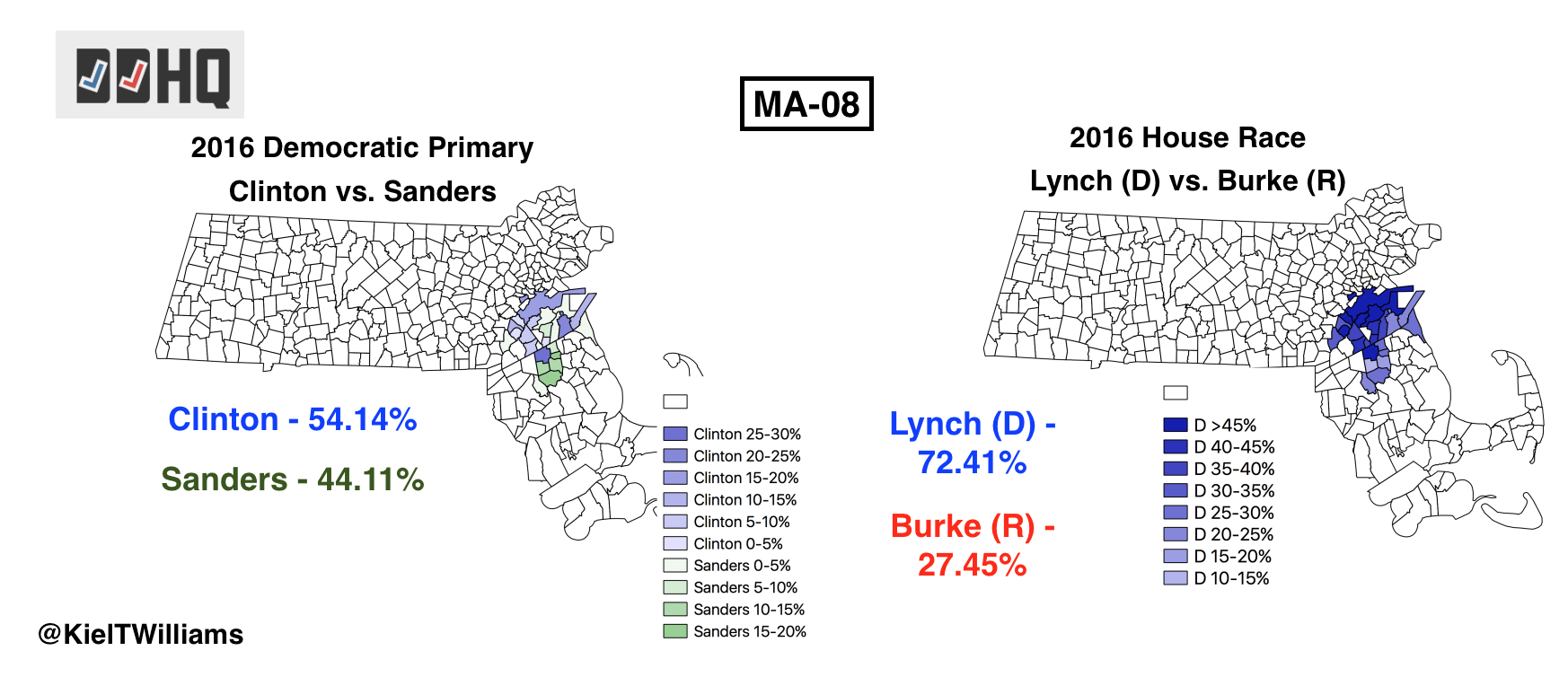[Editor’s Note: Polls close at 8pm eastern. DDHQ county level results can be found here.]
Massachusettsians will head to the polls on Tuesday to vote in one of this year’s final primary elections. The top of the ballot is dominated by the gubernatorial race. However, incumbent Governor Charlie Baker (R) is one of the most popular governors in the country – with approval ratings nearing 70% in some polls – and top-tier Democratic challengers have all passed on the race. Democrats running for the gubernatorial nomination include former Massachusetts Secretary of Administration Jay Gonzalez, and progressive-backed climate activist Bob Massie.
Similarly, Senator Elizabeth Warren (D) is an iconic and powerful incumbent, and national Republicans have declined to mount a real challenge. The most serious Republican senate candidate appears to be nonprofit organizer John Kingston. The Øptimus legislative model gives Democrats a greater than 99% chance of holding the seat.
There are also House congressional primaries of at least some interest being held in Massachusetts’ 1st, 3rd, 7th, and 8th districts.

In Massachusetts’ D+12 1st district, Richard Neal (D) is facing a primary challenge from attorney Tahirah Amatul-Wadud. Neal has represented some portion of western Massachusetts in the House since 1989, and his voting record is typically in-line with other House Democrats. Amatul-Wadud is challenging him from the left, emphasizing her support for Medicare-for-All, and her opposition to greater military spending. The district is open to supporting insurgent liberals – MA-1 supported Bernie Sanders against Hillary Clinton by a 5-point margin during the 2016 Presidential primary. But it’s difficult to imagine Amatul-Wadud overcoming Neal’s name-ID, and massive cash advantage.
Regardless of who wins, this district is unlikely to be competitive in the general election. Neal has never even faced a Republican opponent in the current version of his district. During the 2016 election, Neal defeated independent Fred Mayock by more than 50 points. The Øptimus legislative model gives Democrats a greater than 99% chance of holding the seat.

In D+9 MA-3, on the norther border of the state, incumbent Rep. Niki Tsongas is retiring. This has given rise to a crowded and bruising Democratic primary, with no fewer than 3 candidates who have raised in excess of $1 million. While the candidates have struggled to differentiate themselves, the frontrunner is probably Dan Koh, a former chief-of-staff to Boston mayor Marty Walsh. The district narrowly supported Sanders over Clinton during the 2016 presidential primary, with his support largely based in the more rural western half of the district.
MA-3 is another district where victory in the Democratic primary is tantamount to election. Outgoing Rep. Niki Tsongas hasn’t won by fewer than 10 points in over a decade, and Republicans are not seriously contesting the district. The Øptimus legislative model gives Democrats a greater than 96% chance of holding the seat.

The primary contest in Boston’s MA-7 has attracted attention for Boston city councilor Ayanna Pressley’s challenge to incumbent Rep. Mike Capuano. Capuano – who has represented some version of this district since 1998 – has compiled a liberal voting record, in line with his constituency. The ideological similarities between the candidates have led Pressley to emphasize the importance of diversity and youth representation in Congress. Again, it’s difficult to imagine Pressley overcoming Capuano’s incumbency and massive cash advantage. Especially in a district Bernie Sanders failed to carry by 10-points. But stranger things have happened!
As with MA-1 and MA-3, this district is safely Democratic. Mike Capuano has not even faced a Republican opponent since 1998. And this trend continues this year – once again, no Republicans have filed to run, and the Democratic nominee will run unopposed in November.

Finally, in South Boston’s MA-8, incumbent Rep. Stephen Lynch (D) is facing a primary challenge from blogger and video game developer Brianna Wu. Wu is probably most well-known as a target of the Gamer Gate movement, and she’s emphasized cybersecurity issues in her campaign. Stephen Lynch is an interesting figure on his own – together with Dan Lipinski and Collin Peterson, he is one of only 3 remaining House Democrats to have voted against the ACA in 2010. He is also one of the most socially conservative Democrats in the House, and still describes himself as pro-life.
Given his heterodox views for a Massachusetts Democrat, Lynch is the sort of incumbent who might be vulnerable to a progressive primary challenger. But he appears safe for at least one more election cycle – Lynch is an entrenched incumbent, and Wu’s unorthodox campaign doesn’t appear to have gained traction. Even if it had, Lynch has a deep campaign war chest to draw from. And despite its strong Democratic leanings, MA-8 is no bastion of progressivism – Bernie lost to Hillary here by over 10 points. Because no Republican filed to run for the seat – after Lynch defeated William Burke (R) by over 40 points in 2016 – the winner of the Democratic primary will run unopposed.
Please join us here on Tuesday night for live election results, as soon as Massachusetts polls close at 8 PM Eastern!